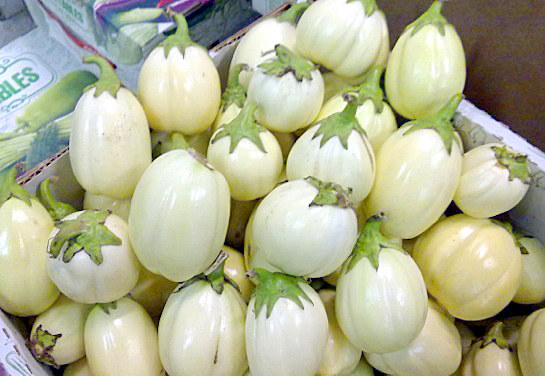
Garden egg farming, also known as eggplant farming, has become a lucrative venture in Nigeria, given the high demand for garden eggs in local markets.
Garden eggs are not only a staple in Nigerian cuisine but also play an important role in the country’s agricultural economy.
With the right knowledge and techniques, farmers can successfully grow garden eggs and tap into the thriving market.
This article explores the key aspects of garden egg farming in Nigeria, offering a detailed guide on how to start and manage a garden egg farm.
1. Choosing the right variety of garden egg
When starting garden egg farming, one of the first steps is selecting the right variety of garden egg to plant. There are different varieties of garden eggs, such as the round purple, white, and green types, each with its unique growth requirements.
In Nigeria, the most popular varieties are the purple round and the long white garden egg. The choice of variety largely depends on the region, as some varieties thrive better in specific climates.
It’s important to consider the local market preference when selecting the variety, as this will determine the farm’s profitability. Consulting with local agricultural experts can help you choose the best variety for your area.
2. Preparing the soil for garden egg cultivation
Soil preparation is crucial for a successful garden egg farm. Garden eggs require fertile, well-drained soil that is rich in organic matter.
The soil should be slightly acidic to neutral (pH range of 5.5 to 6.5) for optimal growth. Before planting, it’s advisable to test the soil to determine its pH and nutrient content. Based on the results, you can amend the soil by adding compost or organic manure to improve fertility.
Additionally, ensure that the soil is well-tilled and free of weeds, as these can hinder the growth of garden eggs. Proper land preparation will create a conducive environment for healthy root development and high yields.
3. Planting garden egg seedlings
Once the soil is properly prepared, the next step is planting the garden egg seedlings. Garden egg farming can be done through direct seeding or by transplanting seedlings.
It is often better to use seedlings that have been nurtured in a nursery for a few weeks before transplanting them into the farm. Space the seedlings adequately, about 60 to 80 centimeters apart in rows, to allow for proper air circulation and sunlight penetration.
Planting in rows also makes it easier to manage the crops and reduce the risk of diseases. The best planting season for garden eggs in Nigeria is during the rainy season, typically between March and July, as this ensures consistent moisture for the plants.
4. Proper irrigation and care
Garden egg plants require consistent watering to thrive, especially during the dry season. Irrigation is an essential part of garden egg farming in Nigeria, as a lack of water can stunt the growth of the plants and reduce yields.
While garden egg plants do well with regular watering, it’s important not to overwater, as this can lead to root rot. Mulching around the base of the plants can help retain moisture and reduce weed growth.
Regularly inspect the plants for pests, such as aphids or caterpillars, and diseases like blight. Using organic or chemical pesticides can help control these issues, but it’s important to follow recommended guidelines to avoid harming the environment or consumers.
5. Harvesting and marketing garden eggs
Garden eggs are usually ready for harvest between 3 to 5 months after planting, depending on the variety and growing conditions. When harvesting, it’s important to pick the garden eggs at the right time—when they are firm and shiny, but not overripe.
Overripe garden eggs tend to be bitter and less marketable. After harvesting, handle the fruits gently to avoid bruising or damaging them.
The market for garden eggs in Nigeria is vast, and they are commonly sold in local markets, supermarkets, and even for export.
Garden egg farmers should focus on building good relationships with wholesalers and retailers to ensure steady demand. Additionally, branding and packaging the garden eggs attractively can help command higher prices.
In conclusion, garden egg farming in Nigeria is a promising and profitable venture, thanks to the high demand for the crop.
By choosing the right variety, preparing the soil, planting properly, and managing the crops carefully, farmers can reap significant rewards.
With attention to irrigation, pest control, and timely harvesting, garden egg farmers can produce high-quality produce that meets market standards.
As Nigeria continues to experience a growing demand for garden eggs, farmers who adopt modern farming techniques are poised for success in the agricultural industry.
Read Also: Types of garden eggs: a comprehensive guide





